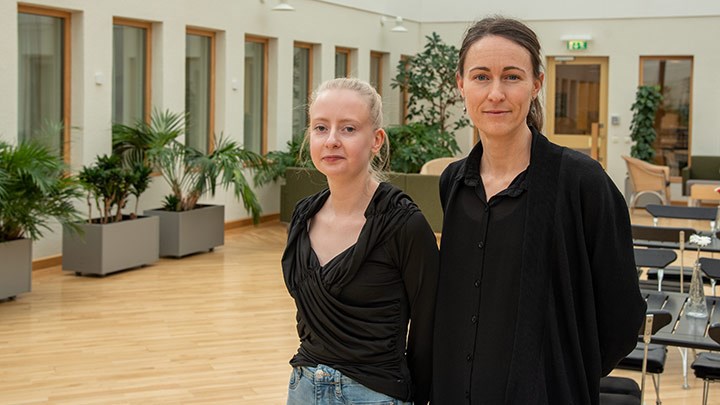Overprotective parents hamper young adults from growing up

Sandra Schmidt Eriksson and Terese Glatz are studying the reasons behind overprotective parents.
Overprotective parents – how common are they, and why do some parents cross the line? Researchers in 10 European countries are studying questions about helicopter parenting.
“Young adults, who are supposed to shape their own lives, are hampered by parents who don’t know when to take a step back,” says Terese Glatz, researcher in psychology at Örebro University.
“For most parents, it’s natural to take a step back as their child gets older. But for some, this is difficult. We want to identify the reasons why some parents are overprotective. They wish their children well, but sometimes things can go wrong.”
Helicopter parents are overprotective parents who hover over their children. They solve their child’s problems instead of letting them try themselves. They make phone calls that their children should make. They help their children with their schoolwork – almost doing the child’s homework for them. Simply put, they do not allow their children to take control of their lives and develop the skills they will need in the future.
“And sometimes it just goes too far. At one school, a young woman had applied for a job but couldn’t go to the interview. Instead of cancelling it, her mother showed up,” says Sandra Schmidt Eriksson, a research assistant in the Swedish research group.
Ten countries are participating
Researchers are studying parents of pupils in their final year of upper secondary school (high school). Their children are adolescents/young adults – over the age of 18 – but most still live at home.
“It’s an interesting age. Especially considering we get married later, live at home longer and study. Adulthood is shifting,” says Terese Glatz.
Ten countries are participating in the study: Australia, Belgium, Croatia, France, Georgia, Greece, Italy, Norway, Switzerland, and Sweden.
“These countries differ in many ways, not least in their views on parenthood and the different roles of mothers and fathers, but also economically and labour market conditions,” says Terese Glatz.
Differences within the family
The study includes over 400 parents from each country – preferably both guardians in the same family to establish differences.
The research project aims at all parents answering the survey in order to reach even parents with different styles and notions of parenting, not just those who are overprotective. Researchers are interested in seeing how parents differ.
The project will also compare parents in the participating countries to determine if overprotective parenting is more common in some countries and how the reasons for being overprotective differ.
Text and photo: Linda Harradine
Translation: Jerry Gray
